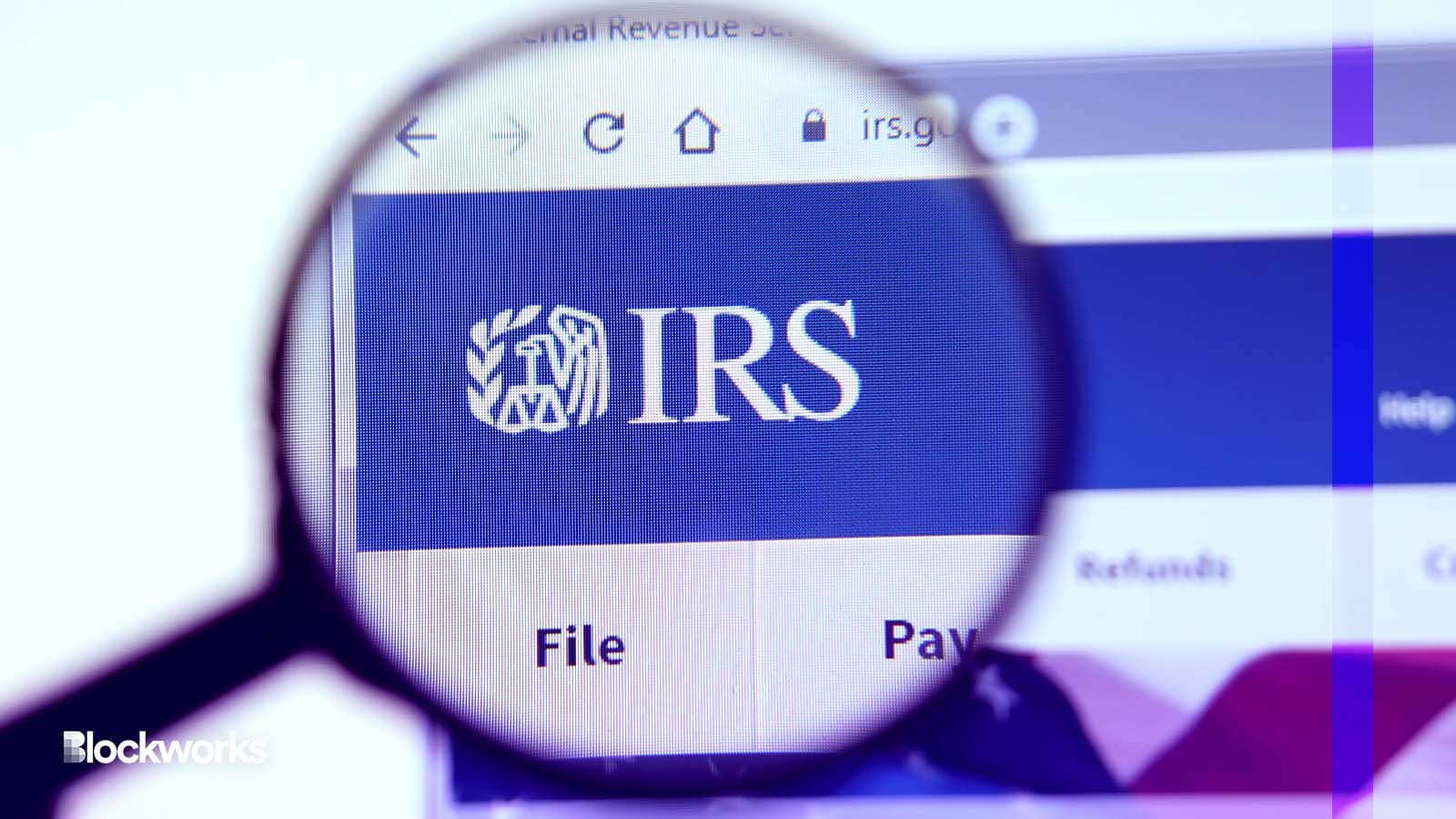Tax Experts Share Best Practices While We Wait for IRS Guidance
Businesses should take a look at their product offerings and think proactively about what regulators might start enforcing soon

Postmodern Studio/Shutterstock, modified by Blockworks
Regulatory clarity is coming, but the timeline is blurry, so enterprises engaging with crypto should be proactive when dealing with tax reporting, experts said during a Blockworks webinar Thursday.
Businesses should assess their business and product offerings and proactively consider upcoming regulations that are likely to apply, according to Erin Fennimore, vice president of tax solutions at TaxBit.
“It’s not always ‘Am I required to do it today?’ necessarily, but in a world of digital assets, you likely will have some regulation coming down the pipeline,” Fennimore said.
It’s paramount for industry enterprises to now take a close look at their security practices, according to Rob Massey, Deloitte’s global and US tax blockchain and digital assets leader.
“Risk and control frameworks are of paramount importance today, particularly on the heels of events of last year,” Massey said. “You need to be really, really thoughtful about how you design your control frameworks, it’s very different than engaging with traditional fiat currencies, or even commodities or traditional securities.”
A number of federal US financial regulators — including the SEC and the CFTC — have heightened their oversight of cryptocurrency initiatives since the start of 2023.
Chris Wrobel, special counsel to the associate chief counsel at the IRS, stated that the tax agency is considering different circumstances with respect to crypto tax policy.
“We still treat digital assets as property…that’s still our position with respect to digital assets generally,” Wrobel said. “We have a project on the priority guidance plan pertaining to staking. We’ve been working on that for a while now and continue to work on it.”
He did not provide a specific timeline for the release of that long planned IRS guidance, but said the IRS is continuing to encourage industry input via comments into the process.
Accountants and industry members have been anxiously awaiting an update from the Treasury and the IRS on broker reporting rules and requirements. The regulations will be issued under Sections 6045 and 6045A, according to an announcement from the IRS earlier this year.
Industry watchers have claimed the definition of “broker” is broad enough to potentially include miners and software developers. This classification could pose challenges in meeting regulatory disclosure obligations for these entities.
“What we are hoping, from an industry perspective, is that the updated 6045 regulations will have different qualifications based on the type of activity,” Fennimore said. “It will hopefully make it clear that not everyone effectuating a transfer of a digital asset should be subjected to broker reporting.”
Fennimore said that in the interim, businesses can generally gauge their most likely IRS classification, including their broker status.
In terms of advice to businesses and traders, the IRS knows there is underreporting happening, Wrobel said, so staying on top of transactions and taxable events is essential.
Get the news in your inbox. Explore Blockworks newsletters:
- The Breakdown: Decoding crypto and the markets. Daily.
- 0xResearch: Alpha in your inbox. Think like an analyst.






